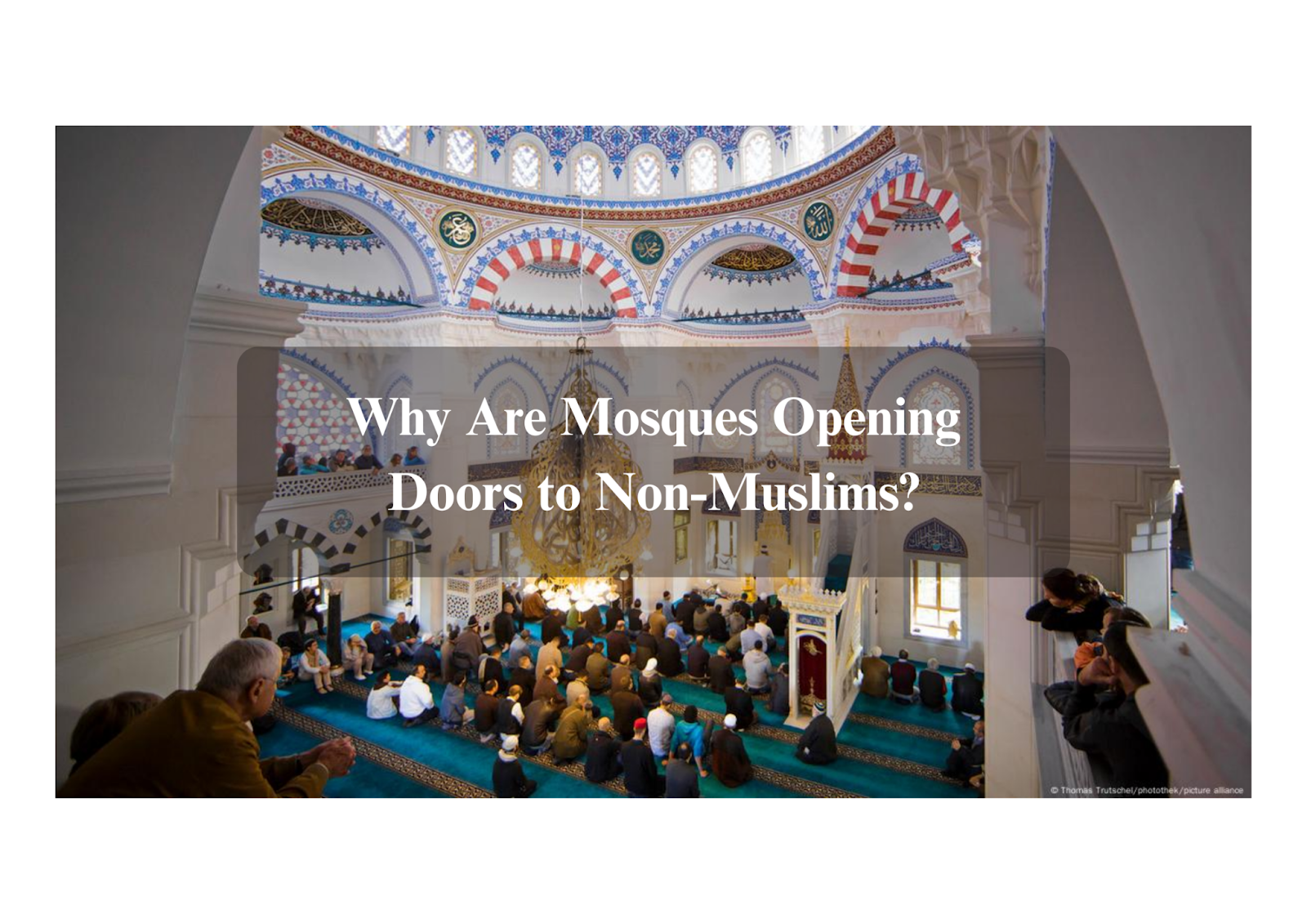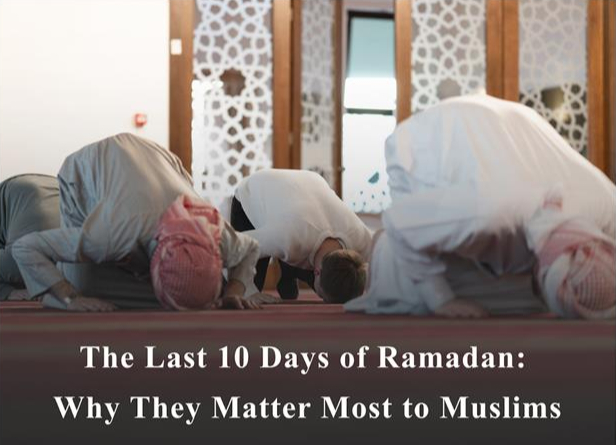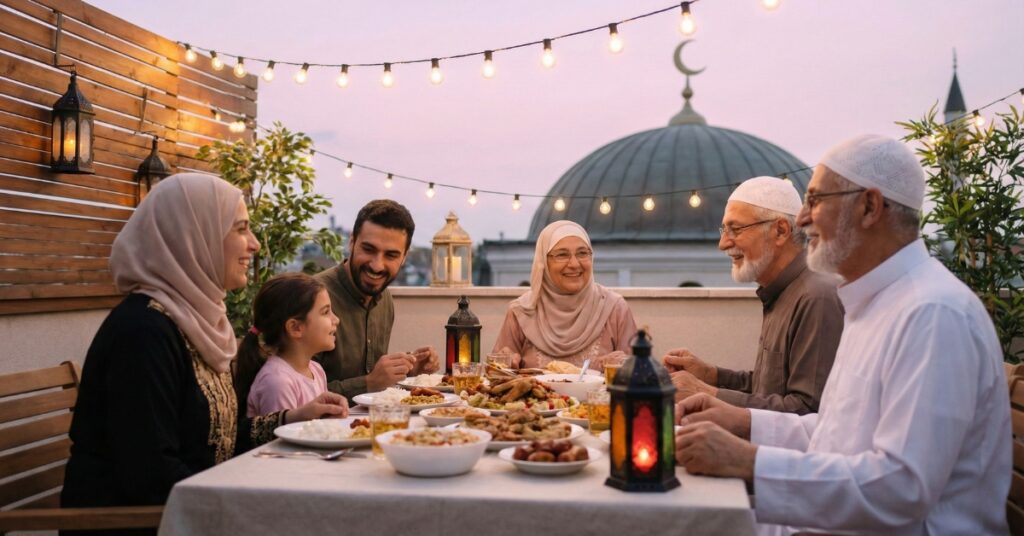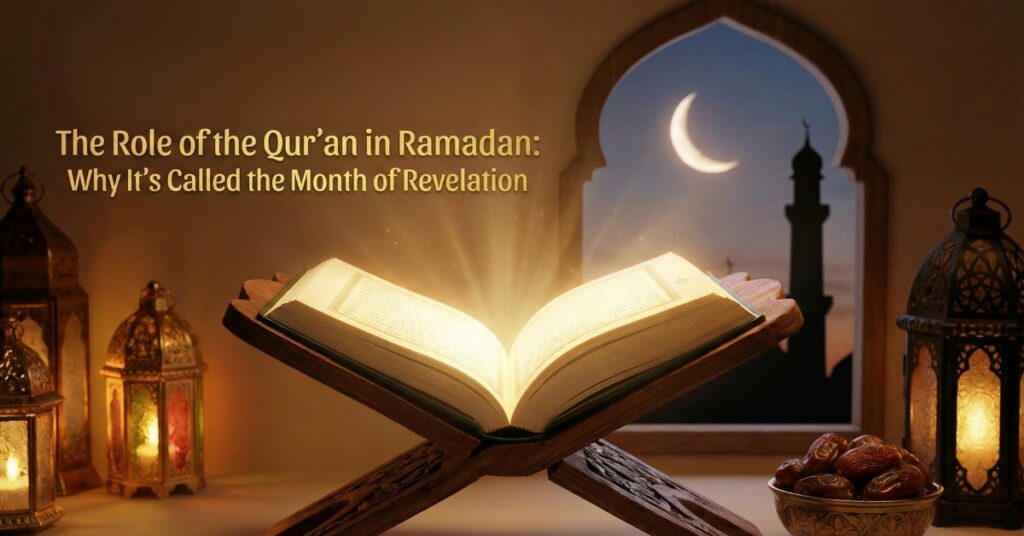In recent years, there has been a growing trend: mosques open to non-Muslims. From “Open Mosque Day” initiatives in Europe to guided tours in multicultural urban centres, the invitation extends beyond the Muslim community. This movement is more than symbolism — it reflects deeper principles rooted in Islam, and it offers powerful opportunities for interfaith dialogue in Islam, hospitality, education and trust-building.
A mosque, or masjid, is a place where Muslims gather to offer their prayers in congregation. The word masjid is derived from the Arabic term sujood, which means sajda or prostration. Muslims prostrate before Allah to show their obedience and devotion to Him, following the example set by the Prophets.
In this blog I explore why are mosques open to non-Muslims? What Islamic sources support this? how it works in practice (mosque visits for non-Muslims), and what benefits it brings under the banner of Islam and hospitality?
Setting The Scene: What Does It Mean?
When we say mosques open to non-Muslims, we usually refer to events or ongoing policies where non-Muslims are invited into mosque premises — the prayer hall, courtyard, community hall — for tours, talks, exhibitions, Q&A sessions with imams or community leaders. Sometimes they observe prayers, sometimes simply learn about architecture, culture, and faith.
This contrasts with more private or closed-mosque environments. In many places, mosques are regarded as places exclusively for Muslims; elsewhere they are community hubs with programmes for all. The shift toward inclusive mosques is part of recognising that faith communities exist in plural societies, and that openness can dispel misconceptions and give others more clarity about What Islam is and How beautifully Salah portrays the Islamic practice.
Foundations in Islamic Teachings
Quranic Principles of Justice, Hospitality & Dialogue
Islam encourages kindness, justice, and respectful relations with people of other faiths:
- Allah says: “Allah does not forbid you from those who do not fight you because of religion and do not expel you from your homes — from being righteous toward them and acting justly toward them. Indeed, Allah loves those who act justly.” (Qur’an 60:8)
- Hospitality itself is a virtuous act in Islam. The Prophet ﷺ said:
“Whoever believes in Allah and the Last Day, should serve his guest generously.” (Sahih al-Bukhari 6136)
These foundational verses and traditions show that extending kindness and openness toward others is part of a Muslim’s character.
The Prophetic Model & Islam Interfaith Relations
Prophet Muhammad ﷺ engaged with people of other faiths through letters, treaties, treaties like the Constitution of Medina, and by welcoming delegations.One such example is, A Christian delegation from Najran visited Medina and was permitted to meet and discuss in the Prophet’s mosque. These historical precedents show that Islam does not automatically isolate itself — dialogue, hospitality and respectful exchange are part of its legacy. That provides justification for modern interfaith dialogue in Islam, including welcoming non-Muslims into mosque spaces.
Scholarly Opinions on Non-Muslims Entering Mosques
While certain sacred mosques (for example Masjid al-Haram in Makkah) have specific restrictions, many scholars accept that non-Muslims may enter mosques for purposes such as education, dialogue or gaining understanding.
According to one detailed explanation:
“It is permitted for Muslims to give non-Muslims permission to enter the Masjid … especially for Da’wah purposes.”
Of course, local laws, culture, security considerations, and the mosque’s community shape how this is implemented — but from an Islamic legal perspective the door is wide enough in many cases.
Why Are Mosques Opening Doors to Non-Muslims?
Here are key motivations behind this trend:
- Breaking Stereotypes & Misconceptions
In many societies, misunderstandings about Islam stem from lack of first-hand experience. If non-Muslims see inside a mosque, hear from worshippers, ask real questions, stereotypes weaken. Events like “Open Mosque Day” aim to humanise Islam, educate Non-Muslims and reduce Islamophobia. - Fostering Trust & Civic Cohesion
Having spaces where Muslims and non-Muslims meet encourages mutual respect. It builds bridges in multicultural towns and cities, contributes to social harmony, and helps civic authorities and communities understand each other. - Facilitating Interfaith Dialogue in Islam (Practically)
Rather than dialogue limited to scholars or institutional settings, mosque-openings enable direct face-to-face encounters. It encourages genuine conversation on faith, values, ethics, and shared challenges (poverty, environment, social justice). Thus, enabling more clarity and a better vision of Islam. - Education & Transparency
Mosque visits for non-Muslims serve as educational outreach. Visitors learn about prayer rituals, architecture, Islamic teachings, charity work, and community services. Transparency helps avoid suspicion or the “unknown”. - Expressing Islam’s Spirit of Hospitality
Hospitality is deeply rooted in Islamic ethics. When mosques open doors, it is a continuation of that tradition — welcoming guests, showing kindness, extending mercy. It is an institutional expression of Islam and hospitality. - Responding to Plural Societies
In countries with religious diversity, mosques cannot exist in isolation. Opening doors demonstrates that the mosque is not just inward-facing, but part of the wider civic fabric. It says: “We belong here, and we want to contribute positively.”
How It Works: Practical Examples & Best Practices
Examples Around the World
- In Germany, over 1,000 mosques opened their doors to non-Muslims to encourage dialogue and overcome fear or misunderstanding.
- In France, mosques hold “open days” with guided visits, exhibitions, and chats with imams.
- Institutions like Masjid An-Nahdhah in Singapore include a Harmony Centre within the mosque complex to support peaceful interfaith coexistence.
These are examples of inclusive mosques which actively position themselves as spaces of learning and welcome.
Guidelines & Etiquette for Non-Muslims Visiting Mosques or Non-Muslims in Mosques Rules
To ensure respectful and meaningful visits, many mosques follow a few protocols:
- Visitors are briefed about appropriate attire (modest clothing, removal of shoes if entering prayer hall)
- Observing peace and silence during prayer times
- Taking care that no prayers are disrupted or not cross the boundary
- Respecting signs about gender-segregated areas or timings
- Asking questions with courtesy, ideally guided by knowledgeable volunteers or imams
- Pre-arranged visits or scheduled open-hours or guided tours
These rules help balance openness with maintaining the sanctity of worship spaces.
Benefits & Challenges
Benefits:
- Stronger community relations
- Reduction in fear or hostility
- More motivated social cooperation (charity work, community service)
- Encouragement of Muslims to reflect on how they present their faith publicly
Challenges:
- Security concerns in certain environments
- Balancing worship needs with visitor programmes
- Resistance from within communities who prefer more private mosque culture
- Risk of superficial engagement without deeper follow-up
Overcoming these requires good planning, clear communication, and leadership that values long-term relationship-building.
Toward Lasting Bridges
For the dialogue to continue meaningfully instead of being just a one-time event, mosques need sustainable strategies:
- Establish recurring open-days, not just one-off events
- Train volunteers or staff in interfaith engagement
- Partner with other faith groups for joint community work (food drives, climate action, social welfare)
- Document impact: feedback from visitors, stories of changed perception
- Embed hospitality into mosque culture — not only when visitors come, but in everyday community outreach
When such efforts are grounded in sincerity, they echo the Prophetic model: speaking justly, practising hospitality, engaging with non-Muslims respectfully — all part of a lived faith.
Conclusion
In general we can conclude that, If some Kuffar (Non-Muslims) ask to enter the mosque so that they can see how Muslims pray, as long as they have nothing with them that could make the mosque dirty, and there are no women among them who are dressed in a provocative fashion, or any other reason not to let them in, then there is nothing wrong with allowing them to enter and sit behind the Muslims so they can see them pray. If Allah wills, this may inspire them to embrace Islam as well.
The exception among Mosques that don’t allow Kuffar is Masjid- Al- Haram in Makkah and other sacred areas around it, because Allah says in the Holy Quran:
“O believers! Indeed, the polytheists are spiritually impure, so they should not approach the Sacred Mosque after this year.” (Quran 9:28)
The movement of mosques open to non-Muslims is a powerful example of how faith spaces can become bridges rather than barriers. Rooted in Islamic teachings of hospitality, justice and dialogue, it offers hope in plural societies. When implemented with sincerity, respect and continuity, it elevates not just how non-Muslims see Islam — but how Muslims practice their own faith in relationship with the wider community.
Is opening doors to non-Muslims only symbolic?
It may have symbolic value, but it can also lead to real change — improved understanding, fewer prejudices, joint service projects. When followed by continued engagement, it is more than symbolism.
Does encouraging mosque visits for non-Muslims compromise Islamic identity?
Not necessarily. When conducted with proper guidance, respect, and clarity, it can strengthen identity by showing confidence in one’s faith, transparency, and willingness to build trust, rather than fear-based isolation.
Why are mosques focusing on outreach now?
Outreach helps counter misconceptions, demonstrates Islamic hospitality, and strengthens ties in multicultural societies. It is also a return to prophetic tradition.
How can a mosque in India adopt such practices?
It can start with occasional open-hours, guided by imam or community volunteers; organise “Meet-the-Imam” sessions; invite local schools, neighbourhood associations; ensure etiquette is communicated; work with local civic bodies to advertise such events.








